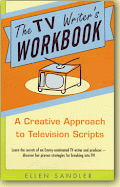
 Jon Sternfeld is a native of New Jersey and joined the Irene Goodman Agency after working both in the creative and development sides of the film industry.
Jon Sternfeld is a native of New Jersey and joined the Irene Goodman Agency after working both in the creative and development sides of the film industry.He was the fastest to get promoted from assistant to agent in such a short time in the history of the company.
He’s actively seeking new clients and he’s interests includes narrative non-fiction that focuses on cultural, historical and social issues, occasional memoir, as well as pop culture and current affairs book.
Here are three of his clients books which is coming out spring of 2010:
David Chura's I DON'T WISH NOBODY TO HAVE A LIFE LIKE MINE (Beacon Press), a narrative non-fiction account of a teacher working with juveniles in an adult prison. (Cover photo attached)
Paul Grossman's THE SLEEPWALKERS (St. Martin's Press), a Nazi-era thriller that takes place in the final days of the Weimar Republic. (Cover is not ready yet).
Bill Smoot's CONVERSATIONS WITH GREAT TEACHERS, an interview collection in the tradition of Studs Terkel that looks at teachers from all walks of life.
He is also interested in intelligent literary fiction that has a large, ambitious canvas exploring a time, place or culture, high-end modern fiction.
E.I. Will you explain to our readers how you make contact with an editor at a major house once you have a manuscript you are excited about? Can you tell us so that we can understand the role of an agent? Do you send an editor a formal proposal of some type? Or do you just pick up the phone? Does it vary from house to house, press to press?
J. S. Over time, you develop enough of a relationship with like-minded editors (usually through lunches or through pitching them projects) that you just know who is right for which project. When I first started, I had to 'cold call' a lot of editors (usually on referral from other agents or editors), but now they know me and I can email them a short pitch letter and ask if they want to see the full manuscript. 98% of the time they do; sometimes, for reasons out of my control, they don't. Having 'go-to' editors for certain projects helps the pitch process go more smoothly. I keep a meticulous notebook of which editors have bought which projects (or what they are looking for) and I consult it regularly.
E.I. How do you view the market for first novels in the literary mainstream genre and literary fiction? Does the culture at your agency differ from other agencies with respect to giving a serious look at first-time authors?
J.S. It's always going to be tougher to sell literary fiction clients, especially debut authors. I am a big champion of young, literary writers and a lot of editors are as well, it's just so difficult to launch new authors that their book has to be jaw-droppingly good - both in story and in voice.
At our agency, Irene lets all the agents go with their gut and seek out the most talented writers we can find. I have no problem looking at first-time novelists, but if someone is past a certain age and they've never written anything (or tried to get stories/articles published) that usually tells me something about their commitment.
Photo of Jon Sternfeld by Lydia Sternfeld
To learn more about Jon Sternfeld, please visit their WEBSITE











.png)

No comments:
Post a Comment